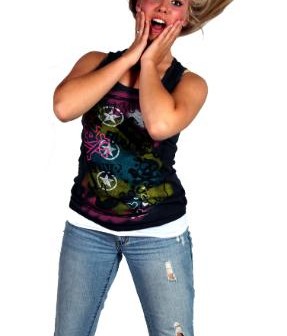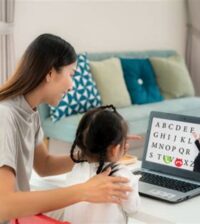- Belgium comes to Yamashita Park
- Residential Villa in Phuket Entices Remote Workers With Long-Stay Rates
- Rare pieces of French glass art at the Mirai Museum of Art
- Feast on fresh fish and seafood at the 2024 ‘Sakana’ Festival
- Would you like to ride in a Louis Vuitton gondola lift?
- Naked Snow Aquarium
- Festive lights at Yomiuriland will get you feeling the holiday vibes
Bubble wrapping mom

Ok. I admit to bubble wrapping my kids. But in my defense, I also work really hard at considering how much of me saying “no” is fueled by separation anxiety versus what makes logical sense.When I was conducting research for my first book, “Am I a Normal Parent?”, I asked parents whether they worried about being neurotic about their children’s safety and well being. Even though I felt reassured that I wasn’t alone – over sixty percent of the parents I interviewed around the world felt the same – I still worried about the impact of keeping my kids too close might have on their growth and development.Enter Lenore Skenazy to give me even more food for thought. She was dubbed as the “world’s worst mom” after she let her nine-year-old son ride the New York subway home alone and then wrote about it in her column in the New York Sun in 2008. Fast forward several years, and this mom has become an “expert” on letting kids go. With a parenting book and TV shows under her belt, Ms. Skenazy is working at helping parents (and their children) move towards increased self confidence and independence. And my twelve year old daughter loves her for it!
I must admit to being skeptical – and maybe even a little afraid – when I first watched her show with my daughter. I wondered I could trust the “world’s worst mom” to educate me on letting go. Of course, her show reveals the most extreme cases, but still … to my surprise, I am learning. And my daughter is thrilled.
Soon after watching the show, during which petrified parents were helped to allow their tween children to work in the kitchen unsupervised, Chloe was inspired. She has stirred up a batch of muffins every week since. And she’s really good at it – even using the oven and washing up after herself. But then again … I’ve never really had an issue with her becoming more independent around our home.
But outside the house is another story. For example, she’s pushed to go to the mall without adult supervision for a while now. I recall when parents completed the questionnaire for the aforementioned book and responded to an age at which they felt comfortable with their child being in the mall without adult supervision. The youngest age was ten and the oldest was seventeen. Quite a range but I’m not convinced that it’s all about age. I personally wouldn’t feel comfortable with a ten-year-old being unsupervised, but once a child is twelve or thirteen, it’s more about maturity, being aware of one’s surroundings, and about having the life skills necessary to deal with the unexpected.
So I tried out my theory and encouraged by Ms. Skenazy, I allowed my twelve-year-old Chloe to spend a couple of hours alone in a familiar local mall with her friend Jade this past weekend. The deal was that her friend’s mom was going to be in the mall at the same time, that they were all going to have their cell phones on, and that they were to agree on a designated meeting place and time.
An hour into their adventure, I received a frantic call from Chloe. Our conversation went something like this:
Chloe: (she sounded panicky) “Mom. Can you come get us? There’s a fire at the mall and we’ve been evacuated.”
Me: “Come on Chloe, stop pulling my leg. You’re just trying to freak me out because we’ve talked about what you would do in the case of a fire.”
Chloe: “No, I’m serious, Mom.”
And then I heard sirens in the background and knew that she wasn’t kidding. I asked where she was and if she had tried to reach Jade’s mother. She knew which exit they were at and had tried to connect with her friend’s mother unsuccessfully. I was pleased that they had responded exactly as they should. Despite observing some shoppers walking around the mall as if nothing had changed, and despite having left their coats in the car and knowing that they had to stand outside in the freezing cold weather, they left the building and called me after not being able to reach the other mom.
Shortly thereafter, Jade’s mom reached them and they returned home to hot chocolate and lots to share. Chloe said that she was afraid that I would never let her go to the mall again. On the contrary, I told her, they had acted quickly and responsibly. Despite fears of being trampled by the crowds trying to make their way to the exits, of the threat of real fire, and of standing outside in below zero temperature, they mostly maintained composure.
I certainly am grateful that there wasn’t a real fire but glad that the girls had this experience. It reassured me that in a crisis, Chloe knows how to handle herself. It also proved to her that I wasn’t crazy or overly neurotic to prepare her on how to handle emergency situations. I’ve always said that it isn’t just about being afraid that she might get lost or picked on by an older group of children, but about wanting to make sure that she was ready to cope under pressure in tricky situations. I am proud of Chloe and her friend Jade’s maturity to handle themselves as they did. And they are proud too.
Tips to consider when kids want more independence away from home:
Consider whether not letting go is more about your anxiety or whether your concern is logical and reasonable. Then stick with your decision.
It’s not just about age. Consider the child’s level of maturity, awareness of surroundings, ability to handle the unexpected.
Safety in numbers. Make sure that your child’s friend or group of friends is as mature and trustworthy as yours and that together, they can handle what comes their way.
Review “what if” scenarios to prepare your child for tricky situations before allowing increased independence.
Don’t go from being with you to without you overnight. Wean off in gradual steps.
Give your children credit and encouragement when they handle themselves appropriately. This will boost their self confidence.

















